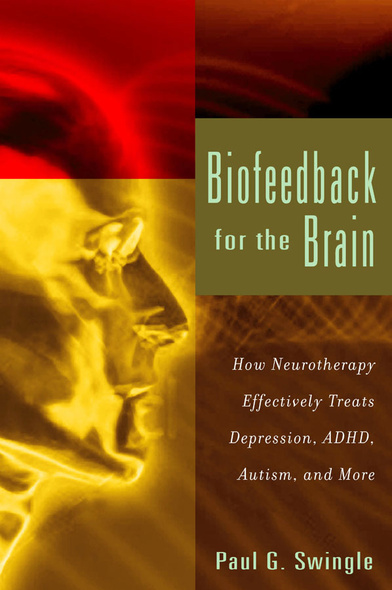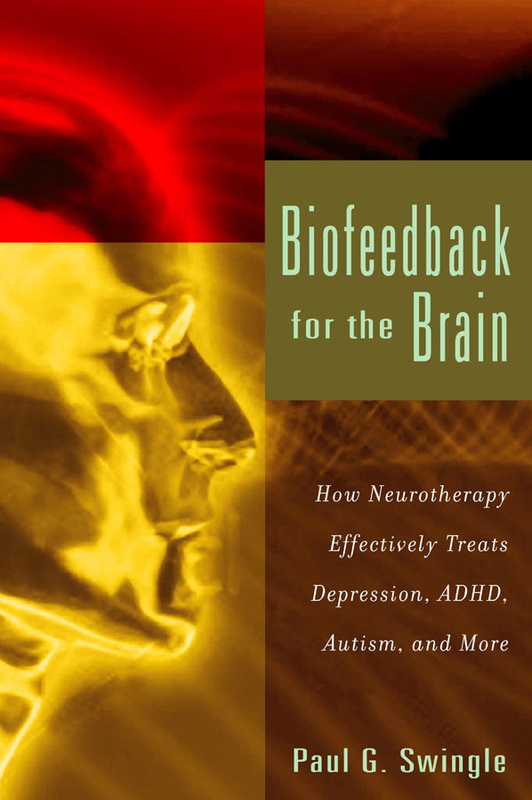
Biofeedback for the Brain
How Neurotherapy Effectively Treats Depression, ADHD, Autism, and More
Neurofeedback is a cutting-edge, drug-free therapeutic technique used by over a thousand licensed therapists in North America to treat a range of conditions from attention deficit and hyperactivity disorders to epilepsy, stroke, anxiety, migraine, and depression. First popularized in the 1970s, this naturalistic method is based on the idea that we can control our brain activity and that, through training, the brain can learn to modify its own electrical patterns for more efficient processing or to overcome various states of dysfunction.
In Biofeedback for the Brain, Dr. Paul G. Swingle describes in clear and coherent language how these procedures work. With numerous actual case examples, readers follow the progress of clients from the initial “brain map” that shows the location and severity of the neurological abnormalities to the various stages of treatment. Conditions often considered untreatable by conventional health practitioners respond positively to neurotherapeutic treatment and Swingle describes many of these remarkable recoveries. Other chapters describe the use of neurotherapy for a variety of surprising purposes, including performance training for elite athletes, of which the most famous example is the Italian soccer team who considered the technique to be their “secret weapon” in attaining a World Cup victory.
Despite wide-ranging success stories and the endorsement of the American Psychological Association, many health care practitioners remain skeptical of neurofeedback and the procedures are still not well-known by the public or conventional health care providers. This book provides a thorough, definitive, and highly readable presentation of this remarkable health care alternative that offers millions of individuals a chance for healing.
Swingle is a seasoned biofeedback practitioner. His work will appeal to both professionals and the concerned public.
Dr. Swingle's book is the first (and the best) to give the rationale for neurotherapy in a panoply of neurological and psychological disorders. He has a practical, yet sophisticated approach to neurofeedback and to adjunctive techniques which make it work faster and better. It is an outstanding guide to neurofeedback for the beginner and the experienced clinician.
This book is a readable primer or introduction, written to help readers decide whether neurotherapy might be of benefit to you or someone close to you. The book achieves that objective with clear examples and sidebars that highlight questions readers may have. [Swingle's] book provides guidance for those seeking a neurotherapy practitioner. Recommended.
A wonderful primer for the would-be practitioner. . . . Swingle writes nicely, very readably, and is a good teacher, and surely, a good healer.
The growing demand for information on cognitive neurotherapy is met by Paul Swingle, whose book deserves to be widely read.
Swingle is a seasoned biofeedback practitioner. His work will appeal to both professionals and the concerned public.
Dr. Swingle's book is the first (and the best) to give the rationale for neurotherapy in a panoply of neurological and psychological disorders. He has a practical, yet sophisticated approach to neurofeedback and to adjunctive techniques which make it work faster and better. It is an outstanding guide to neurofeedback for the beginner and the experienced clinician.
This book is a readable primer or introduction, written to help readers decide whether neurotherapy might be of benefit to you or someone close to you. The book achieves that objective with clear examples and sidebars that highlight questions readers may have. [Swingle's] book provides guidance for those seeking a neurotherapy practitioner. Recommended.
A wonderful primer for the would-be practitioner. . . . Swingle writes nicely, very readably, and is a good teacher, and surely, a good healer.
The growing demand for information on cognitive neurotherapy is met by Paul Swingle, whose book deserves to be widely read.




